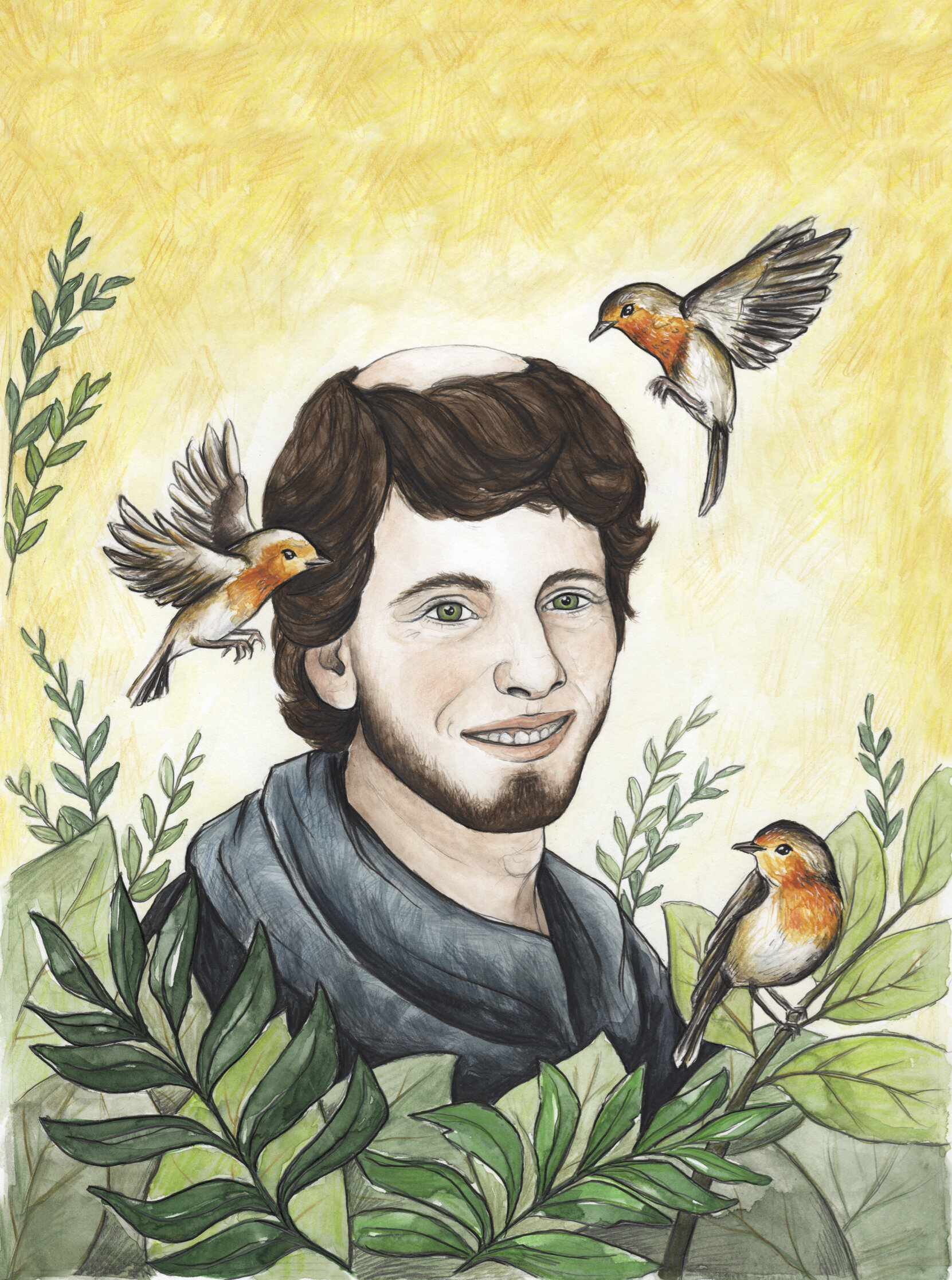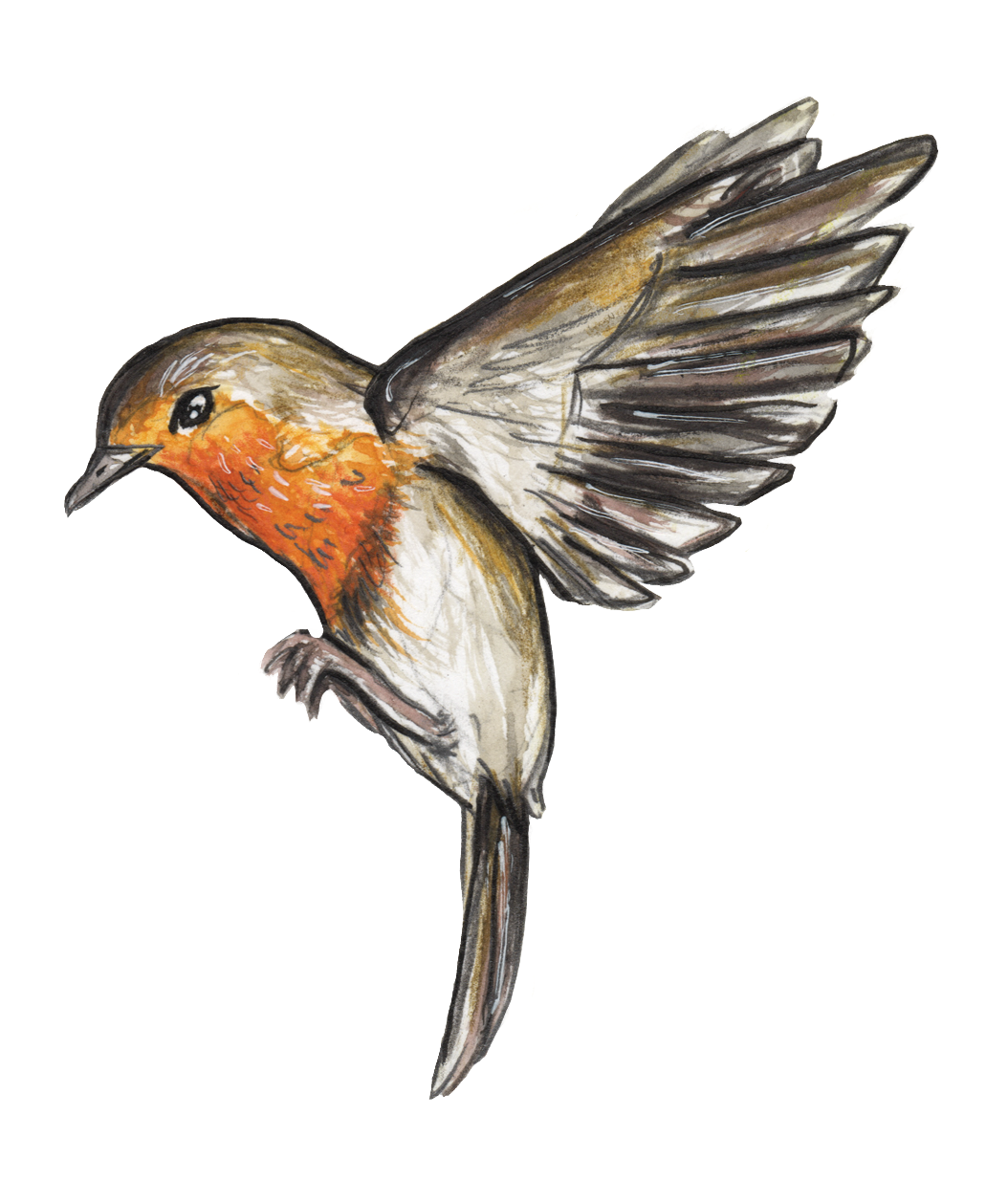Francis of Assisi
The following is a sample profile from the book Holy Troublemakers & Unconventional Saints by Daneen Akers.
Audiobook:
Listen to the story of Francis of Assisi from the new audiobook version, now available from Audible and Apple Books:
Coloring Sheet:
Download the free coloring sheet to accompany this profile.
St. Francis of Assisi is one of the most popular saints, widely known for his love of animals and his advocacy for the poor. However, Francis was an unlikely prospect for a saint when he was born in 1182 in Assisi, Italy. Francis’s father was a wealthy cloth merchant. Francis grew up with every luxury available at the time, and the people of Assisi knew him as one of the popular young men who loved a good party; he and his friends often woke up the town with their late-night singing. Francis especially loved troubadour music, a style of singing with themes of chivalry and courtly love.
Along with the other wealthy young men of Assisi, Francis dreamed of winning glories on the battlefield as a knight. His chance to go to battle came in 1202 when the city of Assisi and nearby Perugia went to war. Francis’ father bought him an expensive new coat of armor, and Francis cheerfully rode off to battle. However, Francis soon came across a knight on the road with rusty, clunky armor. Moved by this older man’s plight, Francis gave the other knight his new armor.
Illustration by Lore Obrejea
Francis’s dreams of glory in battle did not turn out to be that glorious. All of the pain and suffering he saw on the battlefield made him question the point of the violence. He was captured and put into prison where he stayed for over a year until his father could work out the details of a ransom. Francis became weak and ill while in prison, and it took him a long time to recover. When his health returned, he went to battle again.
At that time, the Pope was fighting a series of wars against Muslims and wanted all Christian knights to go to war for the church. You might hear someone refer to these wars as, “the Crusades,” but some Muslim scholars refer to them as the “Frankish Aggression.” Somehow the men in charge of the Catholic Church (the only Christian church at that time) had decided that Jesus wanted his followers to force people to convert to Christianity or be killed, even though Jesus had spent his entire public ministry preaching nonviolence and peaceful methods of sharing the loving values of God’s kingdom.
But, on his way to go to battle, Francis fell ill again. This time, he had a vision directing him to serve God and not other people. Francis went home to pray and meditate. He felt God telling him to serve the poor; it was his calling.
Not long afterwards, when Francis was walking near his hometown, he heard a sound.
“Ding-a-ling. Ding-a-ling.” Francis froze. That was the bell of a leper. At that time, leprosy scared people because it caused a slow and painful death and was thought then to be very contagious. People feared it so much that lepers had to wear a bell to warn people of their presence. Usually Francis turned around and walked away from the ring of a leper’s bell. But on this day, Francis walked towards the leper. He asked the surprised man if he could embrace him as a brother. The man agreed, despite his shock that anyone wanted to touch him. As they embraced, a deep sense of joy filled Francis. Francis apologized to the man for how often he had turned away to avoid him in the past. The man led Francis to the nearby leper colony where people with the illness were forced to live. Francis embraced everyone and went home to bring back food and clothing. He continued to go back to nurse the men and women affected with leprosy over the years.
All of this made Francis’s father angry. “Giving alms to the poor is one thing,” he shouted. “But you are giving away money from my business, fine cloth from my store, and you’re not learning how to run a profitable business.” This argument grew more and more heated, and eventually, Francis denounced his inheritance in front of the town elders. He even stripped naked, handing his father all of his clothes. “Here are my earthy clothes that you have given me,” he said to his father. “Now I only serve God.” He walked away—naked—to a little church nearby that was in ruins. The priest gave him a coarse robe to wear that Francis tied with a rope. Ironically, having no possessions gave Francis a deeper sense of wealth and freedom than he’d ever known before.
Francis set to work repairing the little church, helping anyone who came to him, begging for food for his daily meals, and living a simple life.
In time, others saw how much joy Francis had in his life of poverty and service, and
they began to join him. They committed to giving away all of their money and possessions in order to live a simple, humble life. In 1209, the Pope officially recognized the Order of St. Francis. Soon an order for nuns, the Poor Clares, named after a young noble woman, Clare, who renounced her wealth and joined Francis, was also formed.
Francis viewed all creatures as fellow children of God, even animals and birds. Many stories abound about Francis’s special relationship with animals and the natural world. If he kicked a stone while walking, he would say, “I’m sorry, Brother Stone.” If a worm wriggled too close to the path, Francis would gently move it. “There you go, Sister Worm,” he’d say. “You’ll be safer here.” Famously he once preached a sermon praising God to a flock of many different kinds of birds. And when he blessed them, they flew up into the air in the shape of a cross. Today, many churches hold a blessing of the animals on October 4, St. Francis’s Feast Day. From frogs to finches, dogs to donkeys, cats to canaries, fish to ferrets, people lead their pets into church for a special blessing.
In 1226, Francis died while listening to a favorite Psalm. He wanted his final moments to be filled with praises to God, whom he knew he’d soon see. Francis’ influence remains strong today. Not only is he the patron saint of dozens of cities and good causes (especially those related to animals and the environment), but every Christmas, people all around the world remember the Nativity story with a manger and animals thanks to Francis.
You see, on Christmas Eve in 1223, Francis decided to help people remember how simple and poor Jesus had been as a baby. Francis fashioned a simple manger and filled it with straw. Then he called on some of his animal friends to help. Soon a cow, a lamb, and a donkey stood around the manger. People came to a simple midnight mass at the nativity scene, bringing their torches and candles with them. Today, many Christians all over the world still celebrate Christmas with a re-creation of this scene, all thanks to St. Francis.
People love Francis of Assisi for many different reasons;
what do you love best about his story?
Glossary Terms
Advocacy/Advocate
• An activity that aims to bring about positive change or support for a person, a group of people, or a cause.
• A person who publicly speaks out or otherwise works for the rights of others or to support a cause.
Called/Calling
The sense that God, or a messenger of God, has specifically assigned a person a certain job; often applied in religious job settings, such as, “I was called to become a minister.”
Catholic
A person who is a member of the oldest and largest Christian church. Until the Protestant Reformation in the 16th century, the Roman Catholic Church was the only Christian church; it formed after the Roman Emperor Constantine declared Christianity the official religion of the empire in 313 AD and demanded conformity of beliefs among the various Christian groups and a highly organized church structure.
Christian/Christianity
A person who practices Christianity, the Abrahamic Religion based on the teachings of Jesus, a first-century Jewish teacher. While there are many different types of Christians who vary widely in belief and practice, all find the life and teachings of Jesus to be of central importance.
Elder
A wise, older person who leads, guides, or governs in a family, tribe, or community; in a church setting, a person who helps with rituals like Communion and serves the church community in various ways.
Leprosy
A chronic, contagious disease affecting the nervous system and skin; described in the Christian Scriptures (Jesus healed several lepers), it was feared in the ancient world and people suffering from it were called “lepers” and forced to live outside of society, often with little care.
Meditate
Thinking deeply or quietly focusing one’s mind for a period of time for religious or spiritual purposes or to relax.
Muslim
A follower of the religion of Islam.
Nonviolence
The use of peaceful activities, not force or violence, to bring about positive change; the goal is always to help the people currently doing harmful things to see how what they are doing is wrong and change, so people are never seen as the enemy but bad, harmful ideas are the enemy.
Coloring Sheet:
Download the free coloring sheet to accompany this profile, which includes St. Francis’s quote: “All the gloominess* in the world cannot extinguish the light of a single candle.”
*Note that the original quote used "darkness", but I've used "gloominess" with thanks to Rev. Dr. Wil Gafney for her ongoing scholarship and translation work to help keep the spirit of older texts without the anti-Blackness that is often now associated with some words and phrases.
Read another sample chapter from the Holy Troublemakers & Unconventional Saints book by Daneen Akers.




